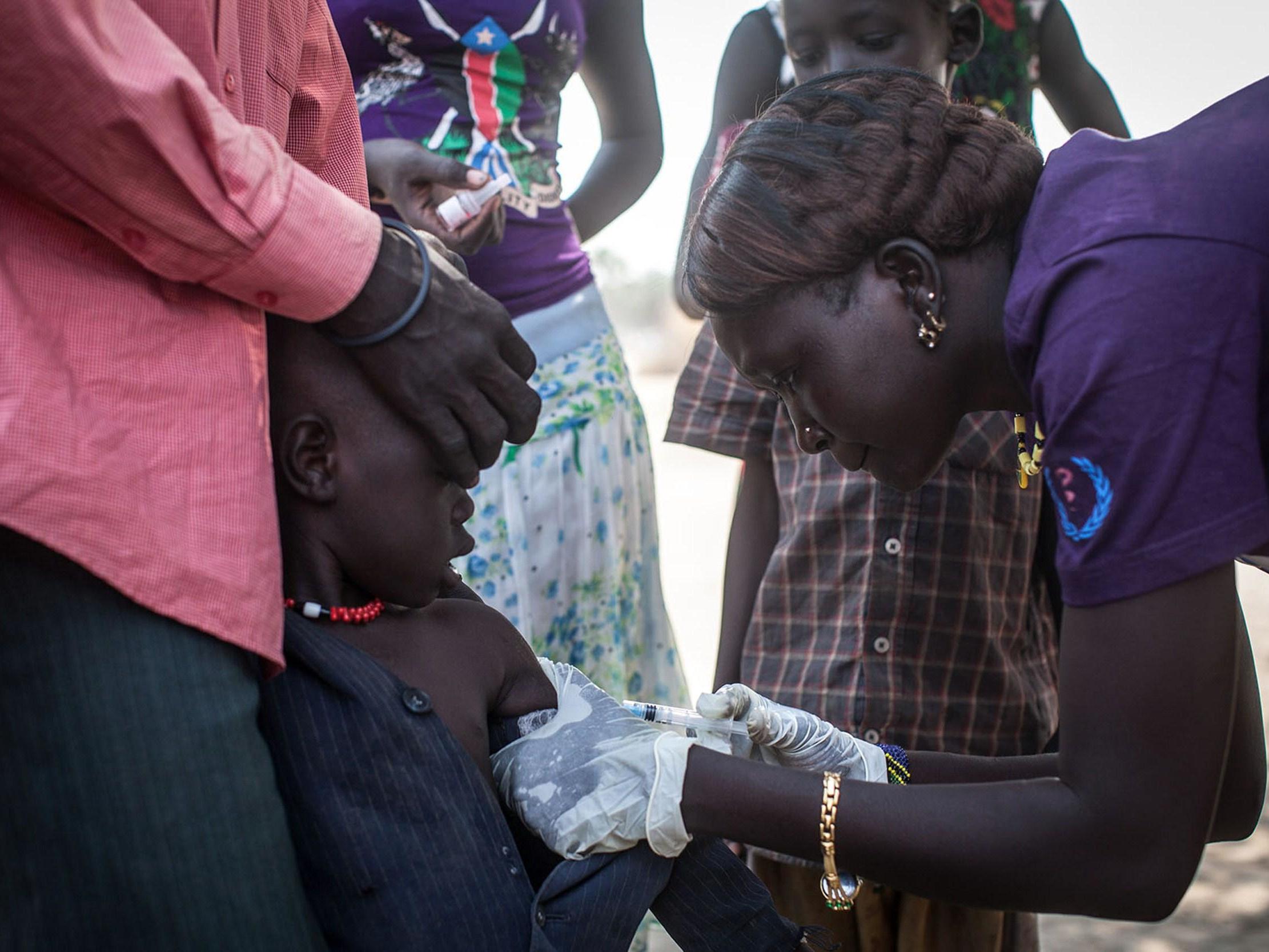‘We must stay vigilant’: Wild polio sufferers reflect as Africa set to be declared free of the disease
Thousands of people across continent still live with effects of disease

Your support helps us to tell the story
From reproductive rights to climate change to Big Tech, The Independent is on the ground when the story is developing. Whether it's investigating the financials of Elon Musk's pro-Trump PAC or producing our latest documentary, 'The A Word', which shines a light on the American women fighting for reproductive rights, we know how important it is to parse out the facts from the messaging.
At such a critical moment in US history, we need reporters on the ground. Your donation allows us to keep sending journalists to speak to both sides of the story.
The Independent is trusted by Americans across the entire political spectrum. And unlike many other quality news outlets, we choose not to lock Americans out of our reporting and analysis with paywalls. We believe quality journalism should be available to everyone, paid for by those who can afford it.
Your support makes all the difference.Nigerian Gbemisola Ijigbamigbe’s right leg was virtually paralysed after she contracted wild polio aged 11 months. Now the 28-year-old leads an active life as a wheelchair basketball player and also enjoys swimming and kayaking.
“Polio is not a death sentence,” she said, smiling.
Thousands of people across Africa still live with the effects of the disease, but on Tuesday the World Health Organisation (WHO) is expected to declare the region free of endemic wild polio, four years after the last case was recorded in Nigeria.
Health officials are set to announce that all 47 countries in the WHO’s Africa region have eradicated the crippling viral disease that attacks the nervous system and can cause irreversible paralysis within hours.
Children under five are the most vulnerable, but people can be fully protected with preventative vaccines. To keep the virus at bay, population immunisation coverage rates must be high and constant surveillance is crucial.
Globally, wild polio case numbers have been cut drastically due to national and regional immunisation for babies and children. The disease remains endemic in Afghanistan and Pakistan, however.
“Until wild poliovirus is eradicated everywhere, it’s still a risk everywhere,” Michael Galway, a polio expert at the Bill and Melinda Gates Foundation, told Reuters, urging continued vigilance.
“There’s nothing that prevents the virus from making the route from Pakistan and Afghanistan to Africa,” he said.
Ms Ijigbamigbe, who is based in Nigeria’s commercial capital Lagos, looks back on a childhood that was blighted by the emotional pain of wearing oversized clothes to hide her difficulty walking.
“I was trying to mask my emotions so that whatever you say does not get to me. But inside, I would cry,” she recalls, her pronounced limp hinting at her condition.
The WHO estimates that 1.8 million children have been saved from life-long paralysis from wild polio.
Yet despite Tuesday’s expected announcement at a videoconferencing event, a vaccine-derived strain of the disease – which can infect people where there is only partial vaccination and results in the same symptoms as the wild form – continues to circulate in Africa.
“We must stay vigilant and keep up vaccination rates to avert a resurgence of the wild poliovirus and address the continued threat of the vaccine-derived polio,” said Dr Matshidiso Moeti, WHO Regional Director for Africa.
Vaccine-derived poliovirus cases can occur when the weakened live virus in the oral polio vaccine passes among under-immunised populations and eventually changes to a form that can cause paralysis.
The 16 countries in Africa affected by circulating vaccine-derived poliovirus outbreaks include Angola, Burkina Faso, Cameroon, Ethiopia, Ghana, Nigeria and Zambia.
Usman Yusuf – a member of Nigeria’s National Association of Polio Survivors who contracted the disease aged 3 – welcomed wild polio’s eradication from Africa.
Speaking after refereeing a soccer game played by polio survivors sitting on wheeled boards and propelled by their arms, Mr Yusuf said he looked forward to an end to all polio one day.
“We are affected. We don’t expect our children and our younger ones to follow the same route.”
Reuters
Join our commenting forum
Join thought-provoking conversations, follow other Independent readers and see their replies
Comments